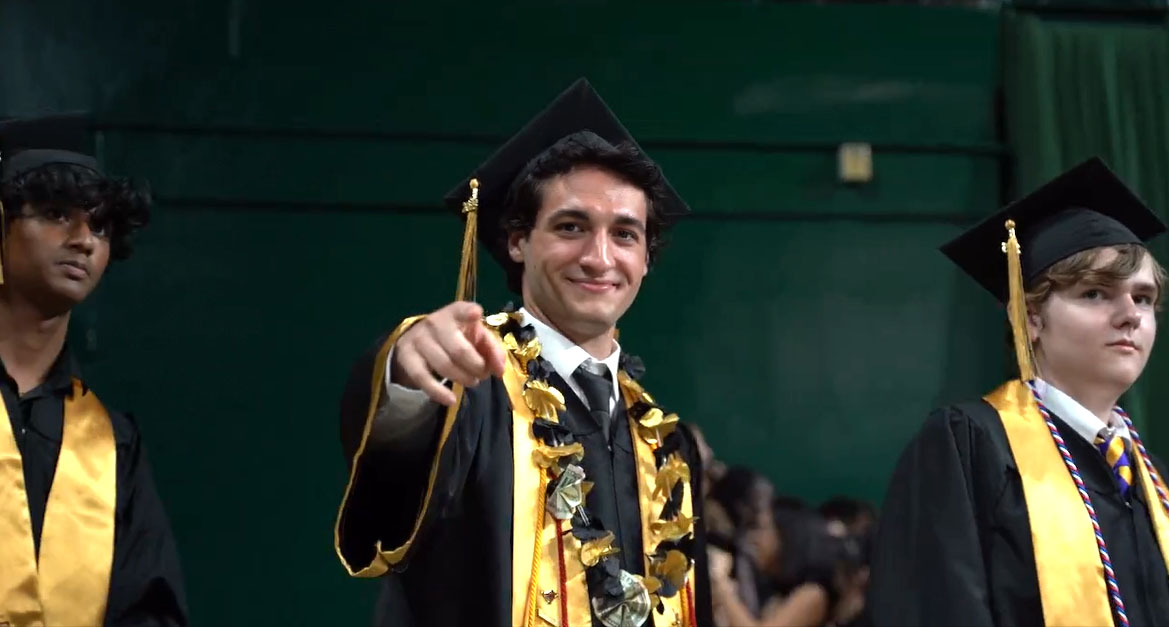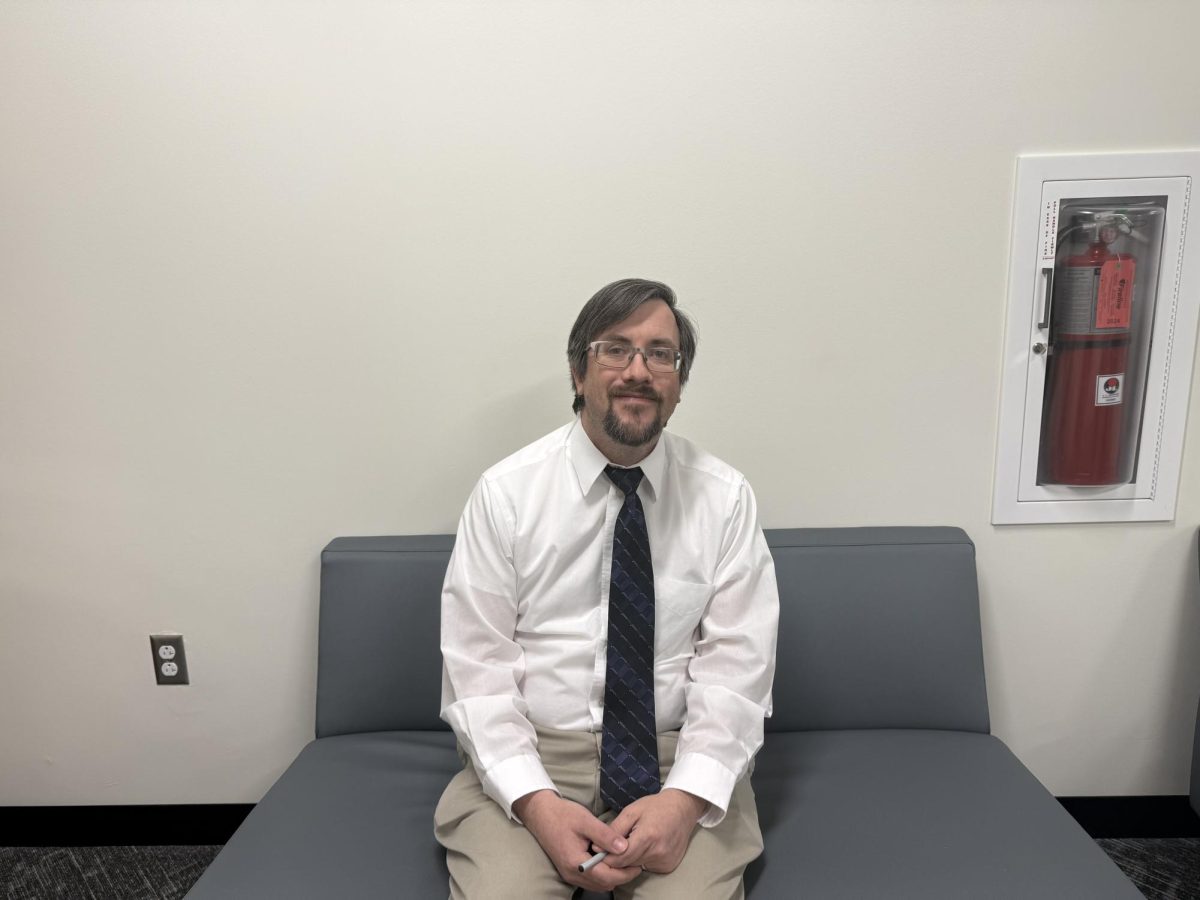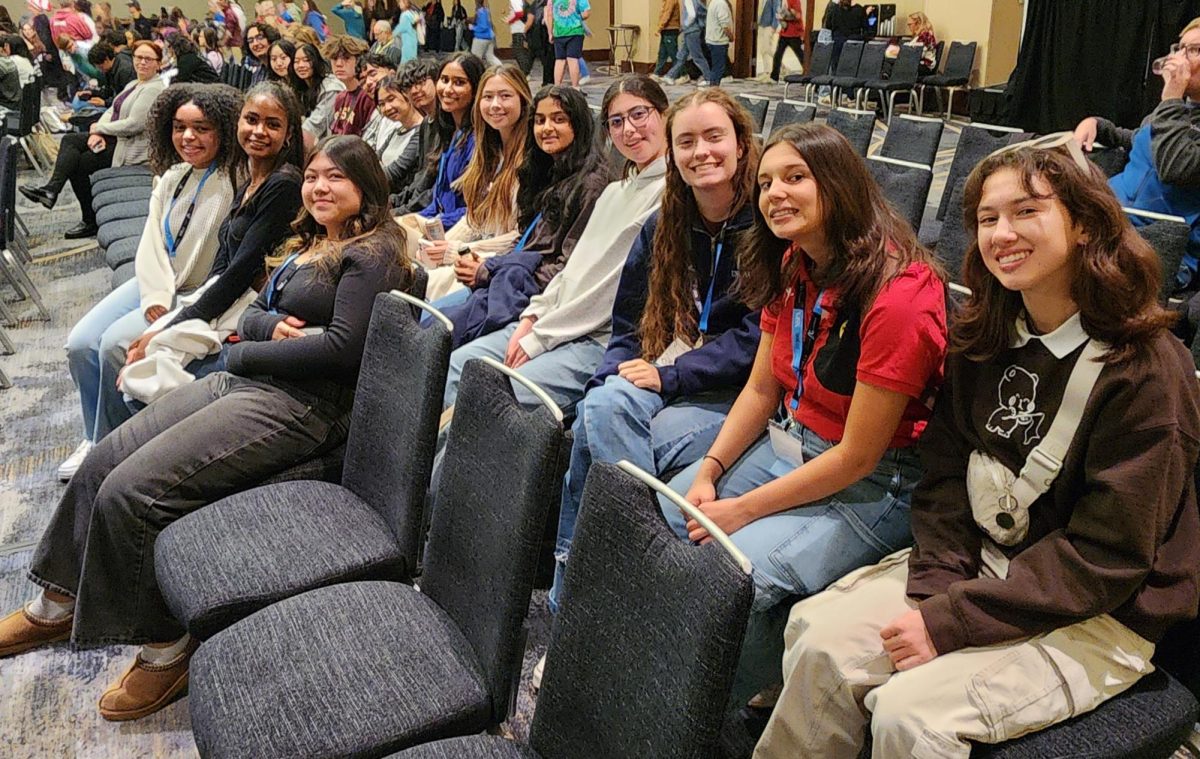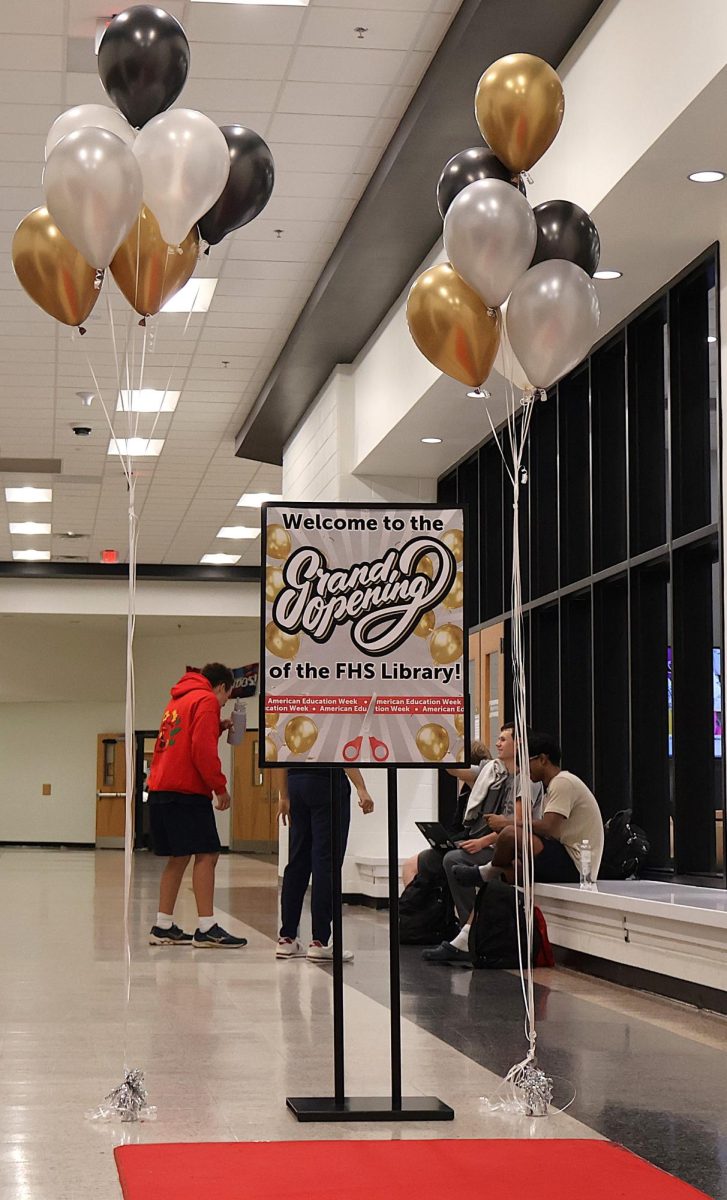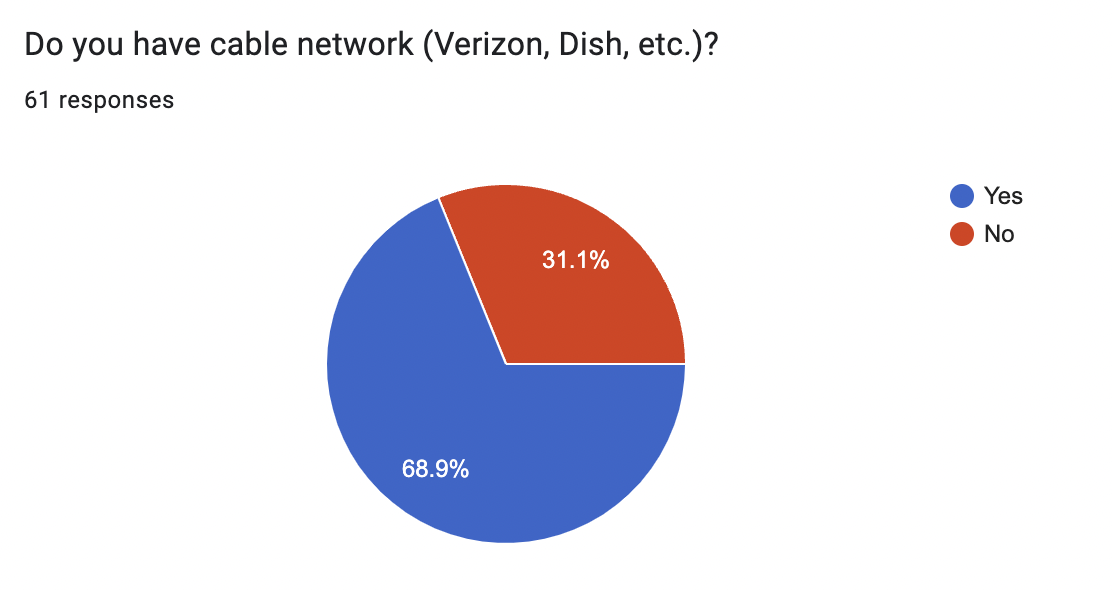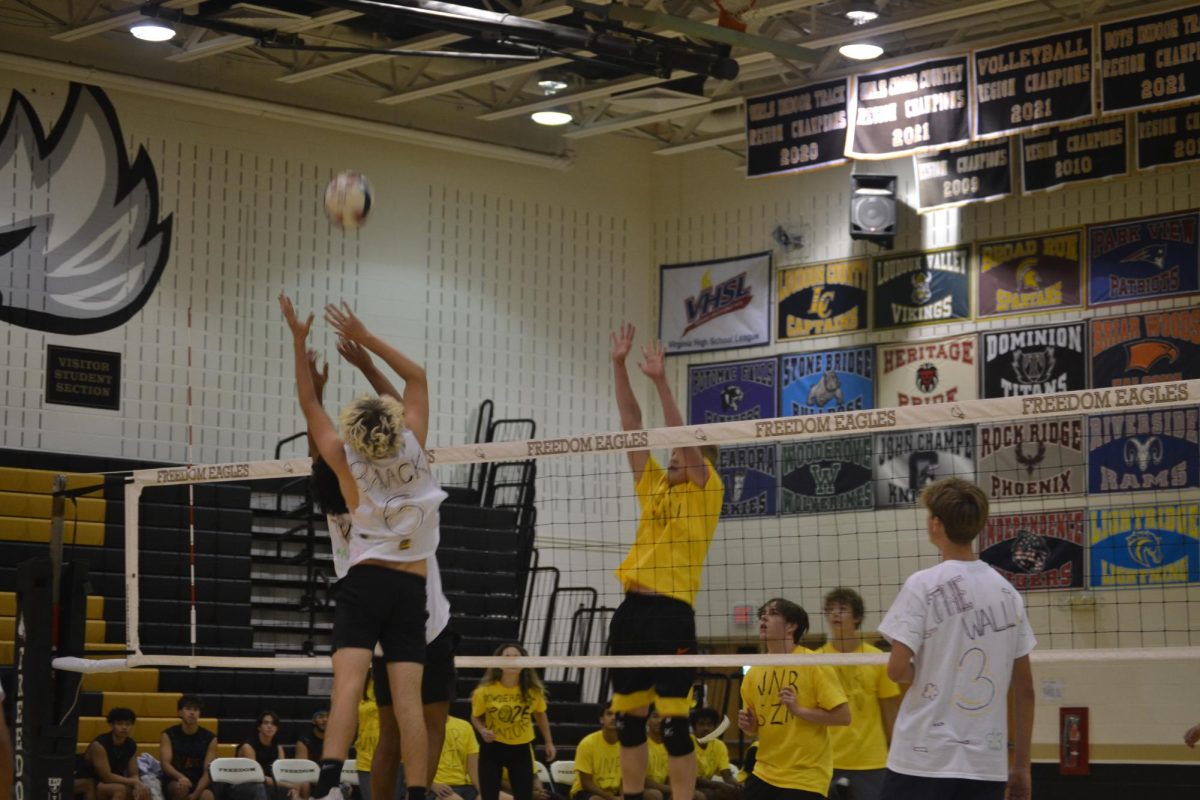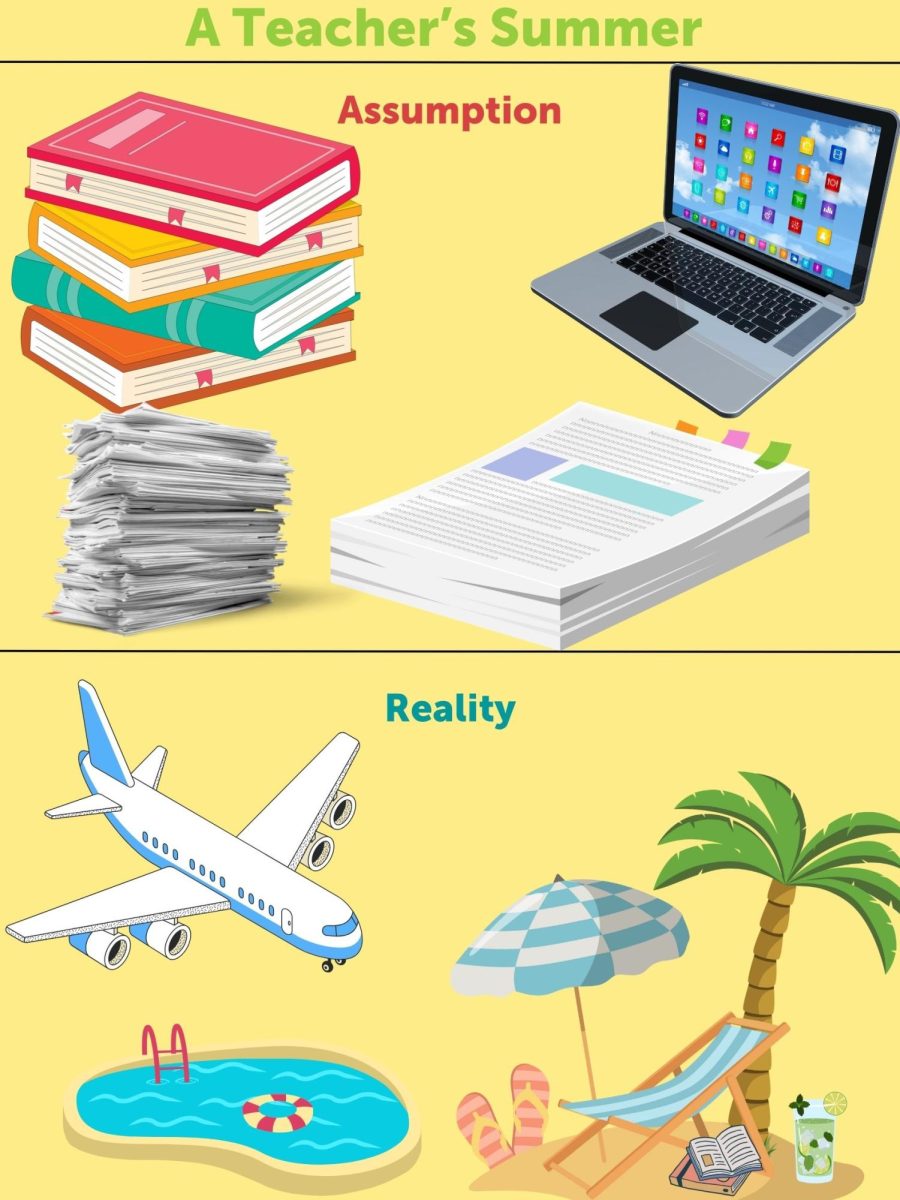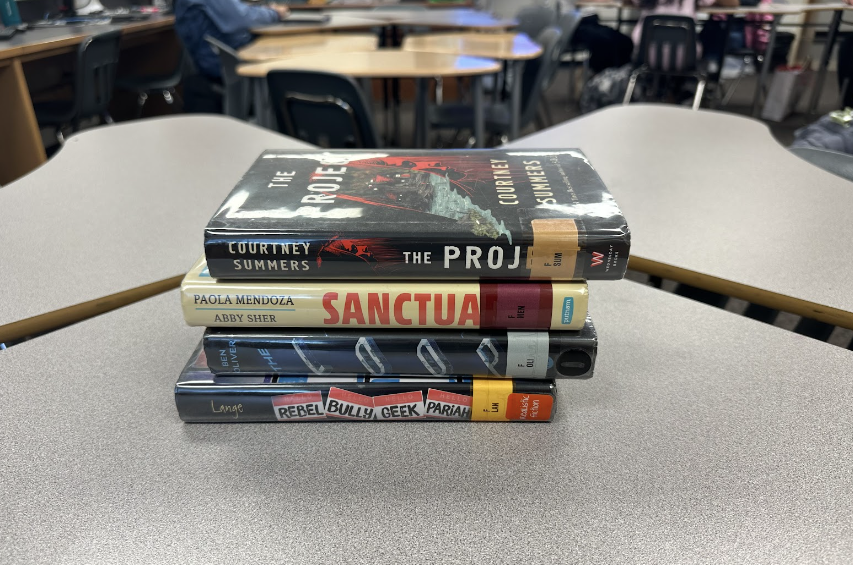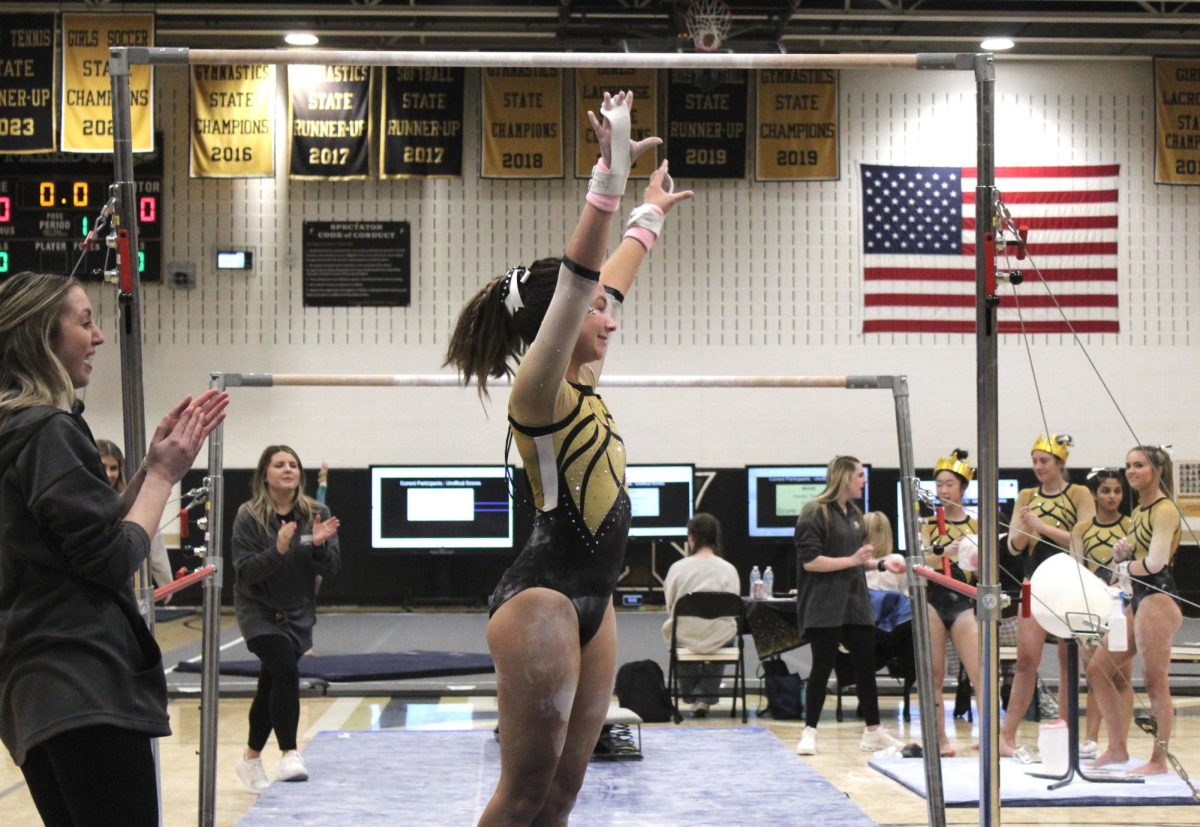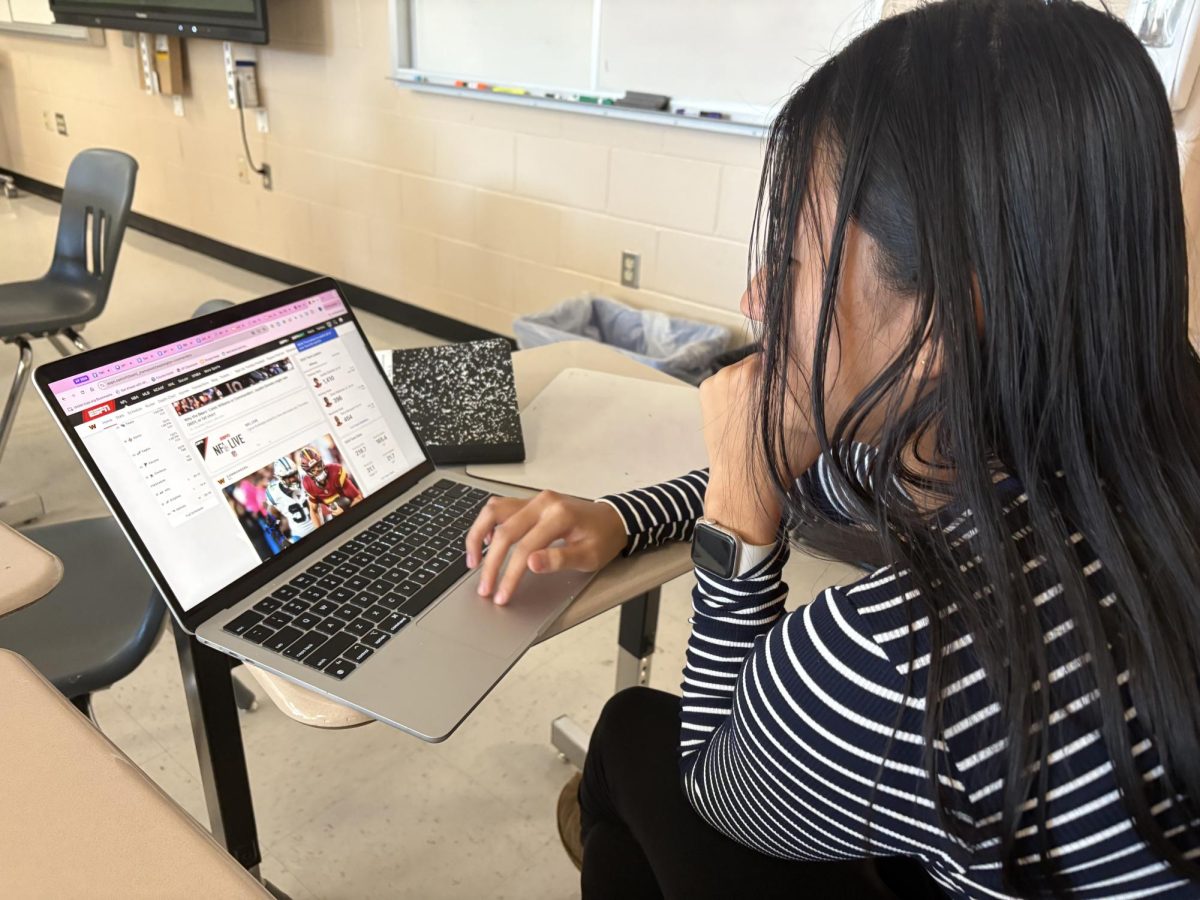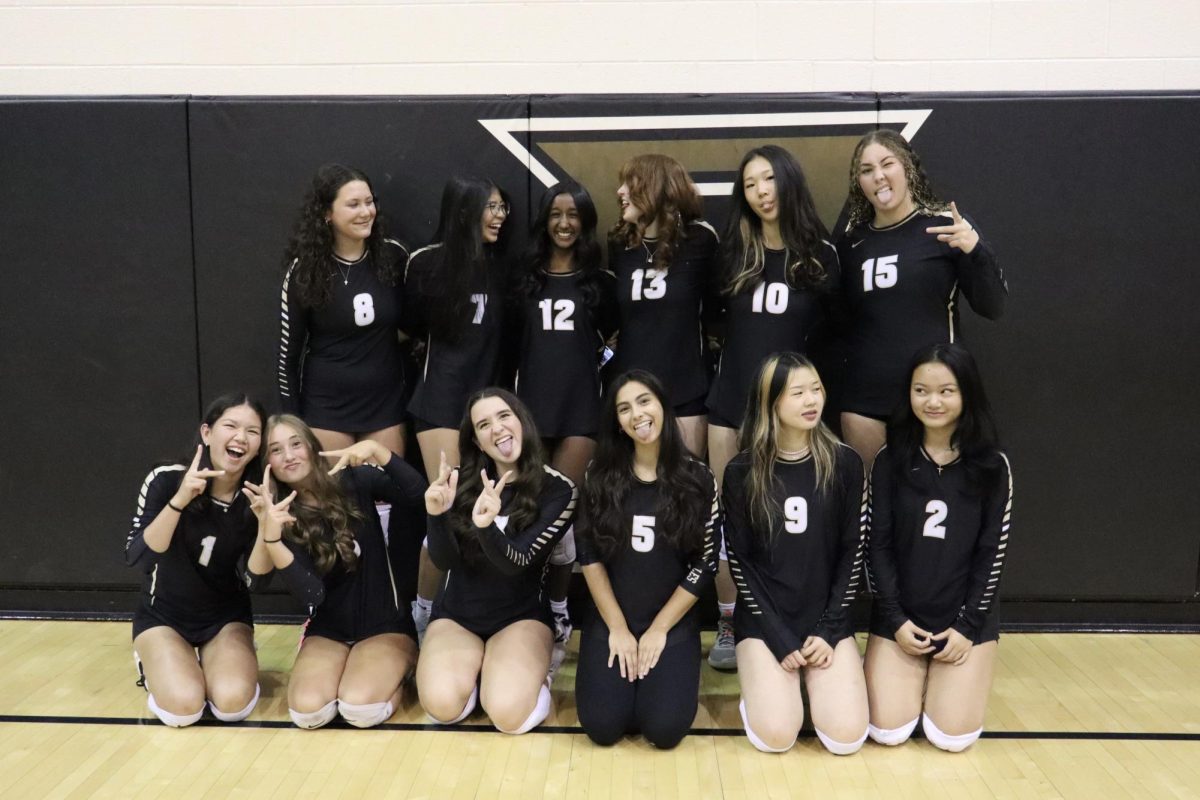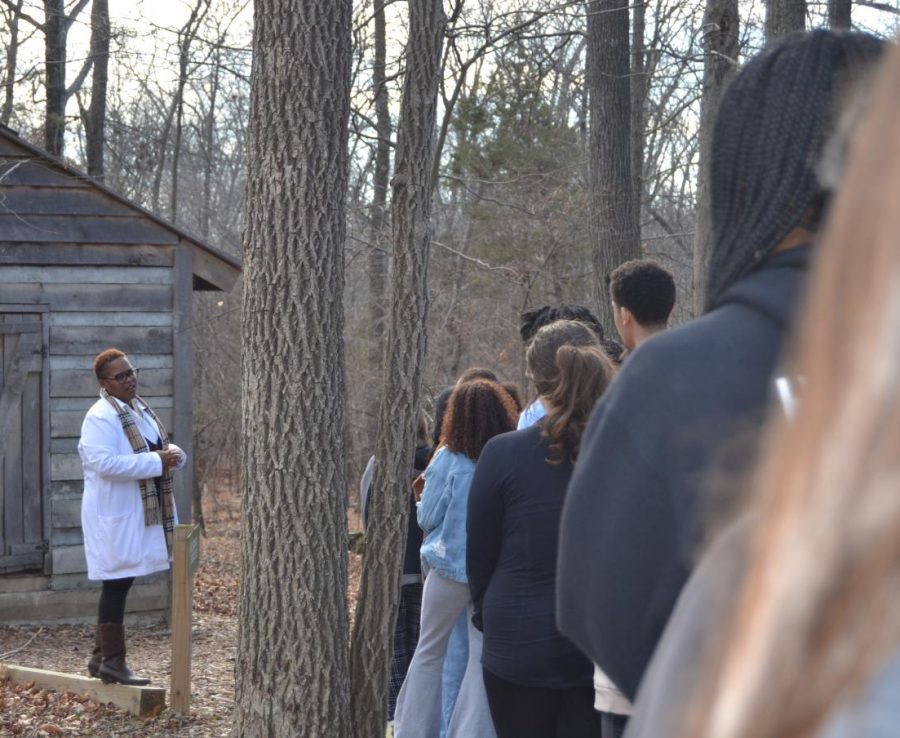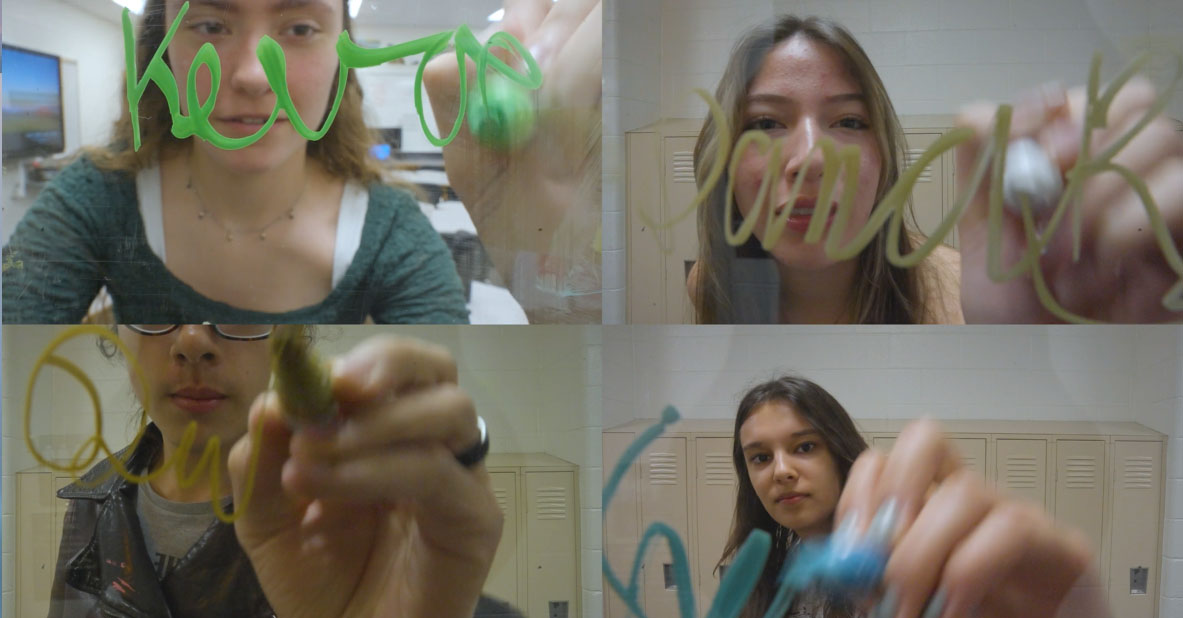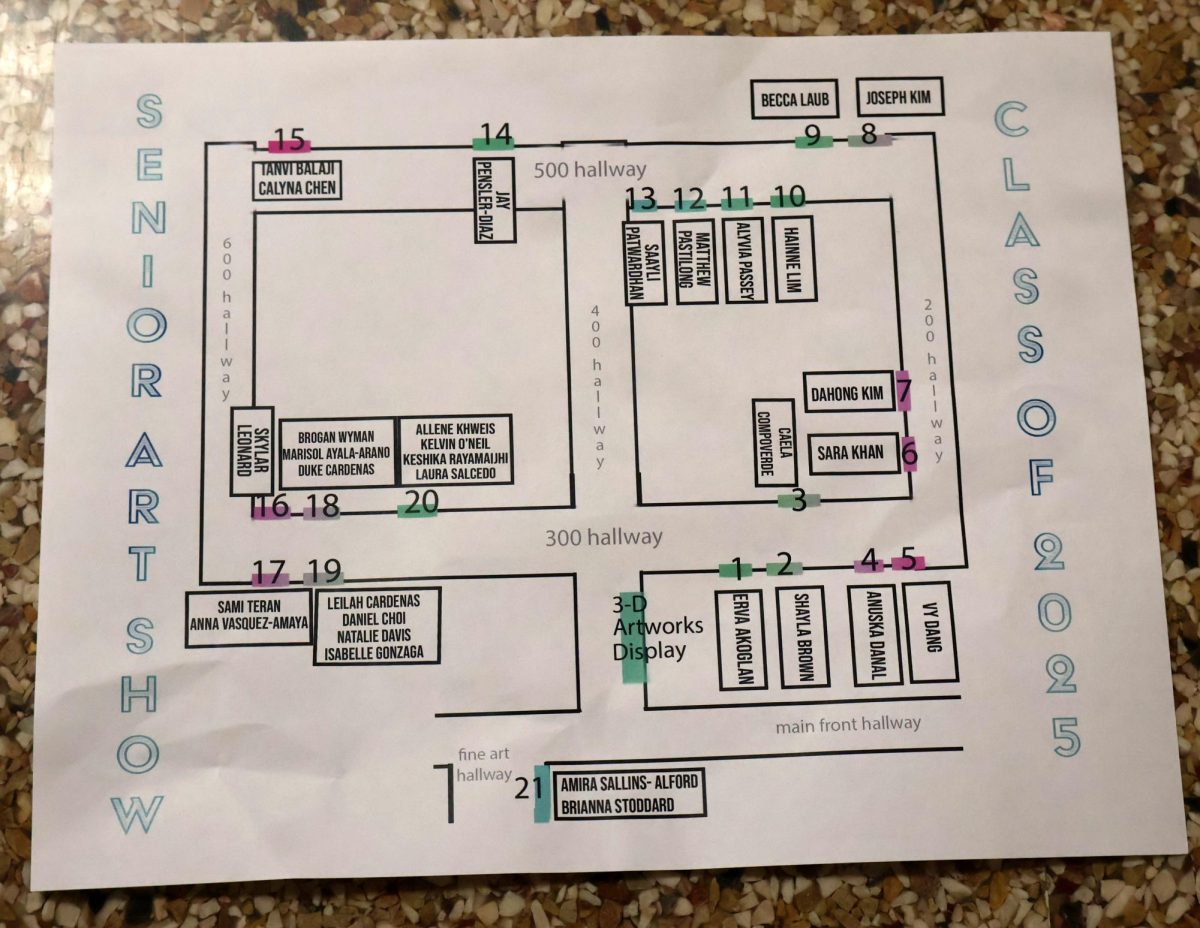Should High School Have More Field Trips?
Students gather to see Pastor Michelle talk about a historically black schoolhouse.
March 8, 2023
Jamestown, Kings Dominion, Hershey Park, The Smithsonian’s National Air and Space Museum and other places are few of the many field trips during elementary and middle school. Then suddenly, they were gone! COVID-19’s effect in the past few years is a factor in the lack of field trips in high school, but mostly, there were none to begin with!
Taking elective classes (i.e. orchestra, band, chorus) or joining clubs (i.e. DECA, Mock Trial, FBLA) are the only ways of going on more frequent field trips. This limits the amount of students who are able to enjoy these memorable experiences. As a result, there should be more school-wide field trips, with school-wide defined as field trips without any elective or extracurricular requirements.
The only school-wide field trip was the Black History Month tour of historical sites, which was a very positive experience of insightful information, historical enrichment, and loads of fun! Pastor Michelle, the trip’s supervisor, told heartfelt stories, encouraged critical-thinking discussions, and gave an eye-opening lesson to local African American history. School-wide field trips such as these provide students with different approaches to learning besides the usual classroom lectures and daily routines. Having more interactive activities outside of school helps students engage with their community and boost their happiness in school hours, since sitting at a desk for seven hours is not every teenager’s ideal pastime.
Other than the academic benefits of field trips, they also relieve stress by providing more opportunities to get some fresh air, socialize, and take a break from their taxing responsibilities. Most students have limited time outside of school to go outside if they are not involved in sports or other physical commitments. This means they are stuck inside for most of the school day, with only a few classes allowing outdoor time (i.e. P.E. and environmental science).
Therefore, there should be more school-wide field trips for the Freedom student body because of their intellectual, social, and emotional benefits!
